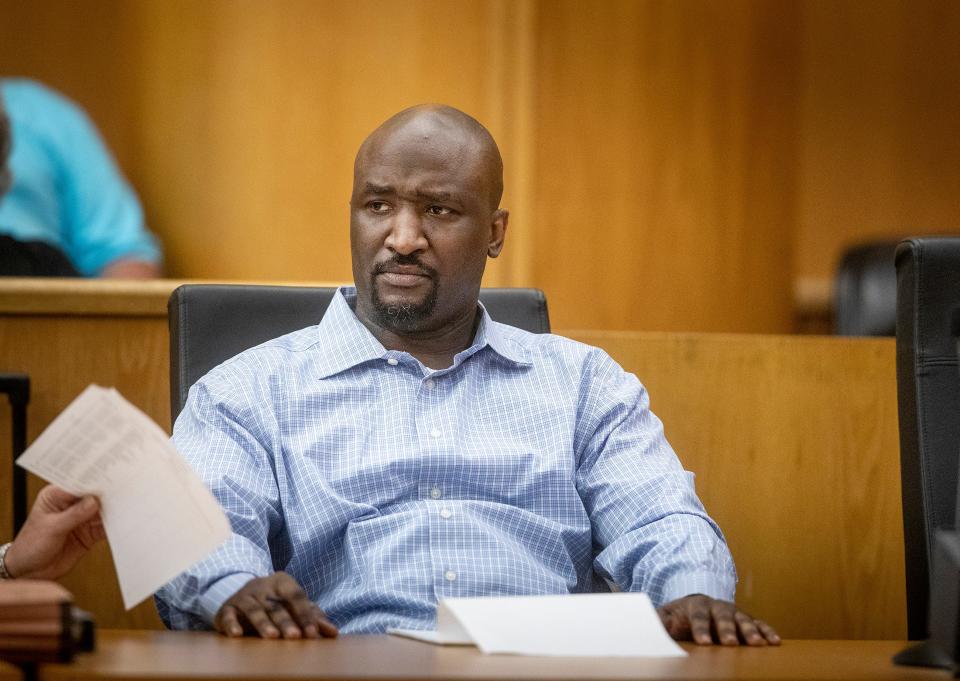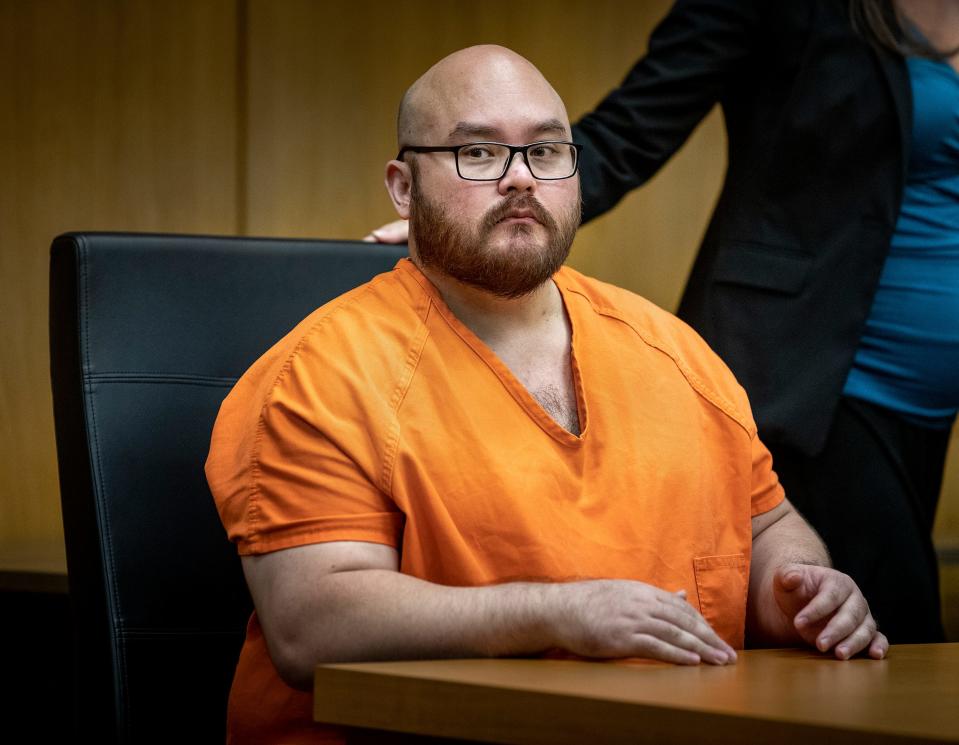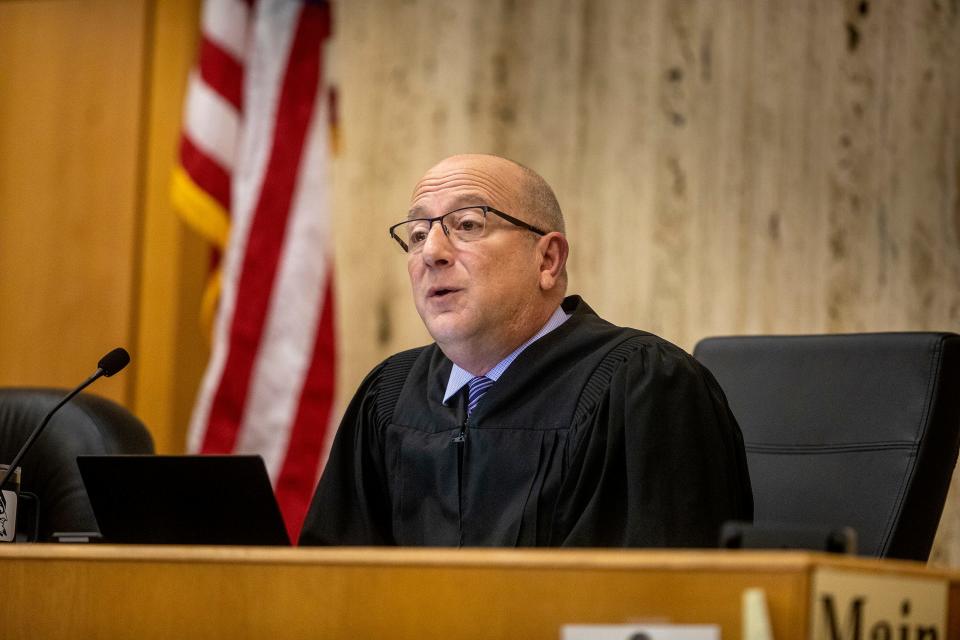Two trials, two rulings: Only 8 jurors needed to recommend death in Lake Morton slayings
When Marcelle Jerrill Waldon was charged with killing former Lakeland City Commissioner Edie Yates Henderson and her husband, David Henderson, in 2020, a death sentence would have required a unanimous jury recommendation for a judge to impose it.
That changed last year.
If found guilty during his trial, which started with jury selection on Tuesday in Bartow, Waldon would face a much lower threshold for receiving the death penalty as long as the prosecution can convince at least eight of 12 jurors to recommend a death sentence.
In addition to the two counts of murder, Waldon faces multiple charges related to the November 2020 slaying of the Hendersons in their Lake Morton home in Lakeland. On Thursday, the court expected jury selection to continue Friday and for the trial to start Monday morning.
The prosecution is expected to present details of those crimes as aggravating circumstances supporting a death sentence should the trial enter a penalty phase, while the defense is expected to present mitigating circumstances.

Should he be found guilty, which still requires a unanimous jury, Waldon’s defense team has hired a mitigation specialist for the penalty phase, court records show.
Since the law took effect, multiple Florida jurisdictions have reviewed their death-penalty cases to determine whether the 8-4 jury recommendation applies to their cases. Those cases include the capital murder trial of Bryan James Riley later this year in Bartow. Riley is charged with the killings of four North Lakeland family members in the predawn hours of September 2021.
Riley and Waldon are represented by the same defense attorney, Debra Tuomey, and their cases are before the same 10th Judicial Circuit judge, J. Kevin Abdoney.
In July, Tuomey filed a motion asking Abdoney to require the higher threshold of a unanimous jury to recommend the death penalty in Riley's case.
Citing rulings by the U.S. Supreme Court and other case law regarding the Constitution's “ex post facto clause," Abdoney ruled the new 8-4 standard could not apply to Riley's case because the crime occurred before the law changed.
But during jury selection in the Waldon case on Tuesday, Abdoney read aloud to the pool of potential jurors that an 8-4 majority – not a unanimous decision – would be the threshold needed for him to impose the state’s harshest criminal sentence.

According to assistant state attorney Jacob Orr in an email Tuesday, the State Attorney’s Office had appealed Abdoney’s ruling in the Riley case to the state’s 6th District Court of Appeals.
While that court has yet to rule on the appeal filed in August, another state appeals court ruled that the new state law applies, he said.
“The 5th DCA ruled that 8-4 is appropriate for all pending cases,” Orr said. He added that Abdoney was then obligated by law to abide by the 5th DCA’s decision.
Neither media contacts with the judicial court nor the DCA would comment on the court proceedings when contacted by a reporter.
Change sparks debate
The law changed after Parkland school shooting defendant Nikolas Cruz escaped the death penalty because a jury did not reach a unanimous decision.
The judge imposed a sentence of life in prison without the possibility of parole, the Palm Beach Post reported.
In Parkland, Cruz had pleaded guilty and avoided a trial for the crimes committed on Valentine’s Day 2018, including the shooting deaths of 17 people, including students, a teacher and two coaches, at Marjory Stoneman Douglas High School.

During the penalty phase of the trial, the jury found the aggravating factors presented by prosecutors did not outweigh the mitigating circumstances – aspects of Cruz’s life and upbringing his defense attorneys said warranted only a life sentence.
The jury decision shocked and hurt the victims' families, who visibly showed their emotions in court and in angry statements to reporters outside the courthouse aimed at Cruz an and toward the defense attorneys.
Gov. Ron DeSantis and state legislators were determined to avoid such a verdict again. The Florida Legislature passed a law requiring only an 8-4 vote for a jury to recommend a death sentence, and Desantis signed the bill into law on April 20.
In an report by The Ledger following Abdoney’s original ruling, Robin Maher of the Death Penalty Information Center said, “The framers considered [the ex post facto clause] to be very important. They wanted to make sure that individuals have fair warning of the laws that are going to apply to them.
Parental rights? Questions raised as Florida lawmakers push social media ban for minors
“And they also want to prevent legislatures from passing laws specifically to punish people; that retroactively punishes someone greater than the punishment he would have received at the time of this crime," Maher said.
The Legislature made it more likely someone would receive a death sentence and that is not fair to the defendant, Maher said after reviewing Abdoney’s ruling in the Riley case.
The state argued there is no violation of the ex post facto clause because the defendant would not have a significantly greater risk of the death penalty.
Still, Maher said there is a history of discussions in the Florida Legislature that was introduced in court cases showing “the legislators were in fact trying to do exactly that. They were trying to increase the possibility that more people would be sentenced to death by lowering the threshold.”
This article originally appeared on The Ledger: Judge rules only 8 jurors can recommend death in Waldon case

